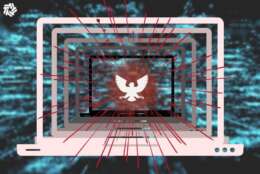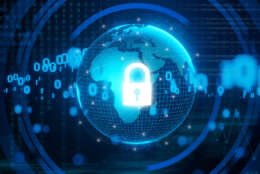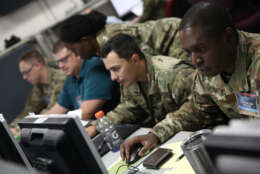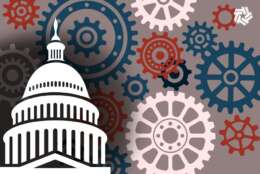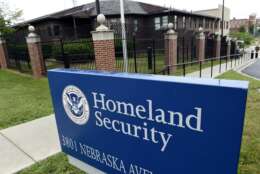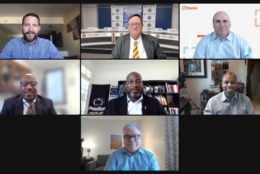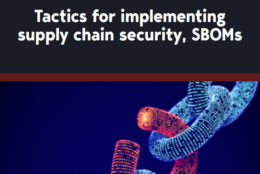Cybersecurity
-
Iranian hackers broke into to a system used by a U.S. municipal government to publish election results in 2020 but were discovered by cyber soldiers operating abroad and kicked out before an attack could be launched, according to U.S. military and cybersecurity officials. The system involved in the previously undisclosed breach was not for casting or counting ballots, but rather one that was used to report unofficial election results on a public website. The breach was revealed during a presentation Monday at the RSA Conference in San Francisco, which is focused on cybersecurity. Officials did not identify the municipality targeted.
April 25, 2023 -
IARPA's program manager explains how she hopes the research agency can make "human factors" a weakness of cyber attackers, too.
April 25, 2023 -
DoD will not be able to afford a fragmented security posture; its cyber analysts and defenders will need visibility across the entire cloud landscape, rather than having to swivel between separate instances. DoD will need a common picture of user identities, a common means of putting policy and protection onto endpoints, and a common defensive layer.
April 25, 2023 -
Understanding the value of compliance data science and using process debt as a cost figure, agencies will overcome resistance to change and improve the efficiency of their operations.
April 25, 2023 -
Companies and critical national infrastructure organizations at risk of cyberattack now need to take best practices from the military’s approach to training and readiness and apply the Cyber Flag construct to protect their critical assets.
April 24, 2023 -
Clare Martorana, the federal chief information officer chairwoman of the Technology Modernization Fund Board, and Raylene Yung, the executive director of the Technology Modernization Fund, say they are giving lawmakers more details and briefings about the progress and impact of the investments.
April 24, 2023 -
16 of the 37 federal programs and governmentwide challenges on GAO’s 2023 high risk list improved, according to the latest biennial report the agency published Thursday.
April 20, 2023 -
Lots of things have days, like National Ice Cream Day. Lots of things have whole months, like USDA Invasive Plant Pest Month. So why not emergency communications? Emergency Communications Month is in fact going on right now.
April 19, 2023 -
After 21-year-old Jack Teixeira was arrested for allegedly leaking classified info, the Pentagon is looking at what it can do to prevent similar situations in the future.
April 17, 2023 -
During this exclusive webinar, you will learn how top government technology executives are implementing effective strategies and technology around zero trust.
April 17, 2023 -
Shane Barney, the chief information security officer at USCIS, and Miguel Adams, the Millennium Challenge Corporation’s CISO, both say the need to educate and train the business customers on zero trust is important to their agency’s success.
April 07, 2023 -
Modern digital tools, powered by IT, have become an integral part of our daily lives. These technologies have changed how we perform various tasks such as accessing information, planning trips, conducting business and communicating with others.
April 03, 2023 -
DoD hasn't yet weighed in with an official position on whether a notional "cyber force" should become a new seventh branch of the armed services, despite years of Congress asking.
April 03, 2023 -
There’s no denying identity access and management are critical to controlling federal assets, but we talk with VMware’s Don Bailey and Ingram Micro’s Tony Celeste about the importance of agencies adopting an enterprise security posture.
March 31, 2023 -
Agencies are honing in on how best to secure software and gain better visibility into their suppliers. We talk to leaders from DoD, FDA, GSA, NASA and State to reveal how agencies are meeting demands for visibility into their vendors’ cyber practices.
March 29, 2023

